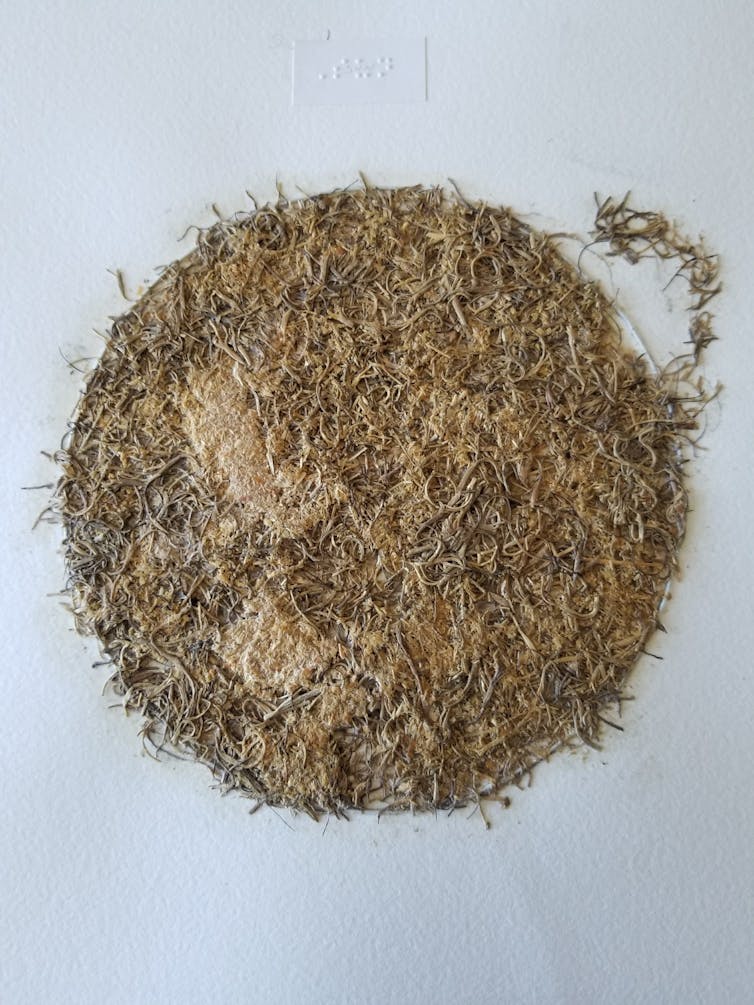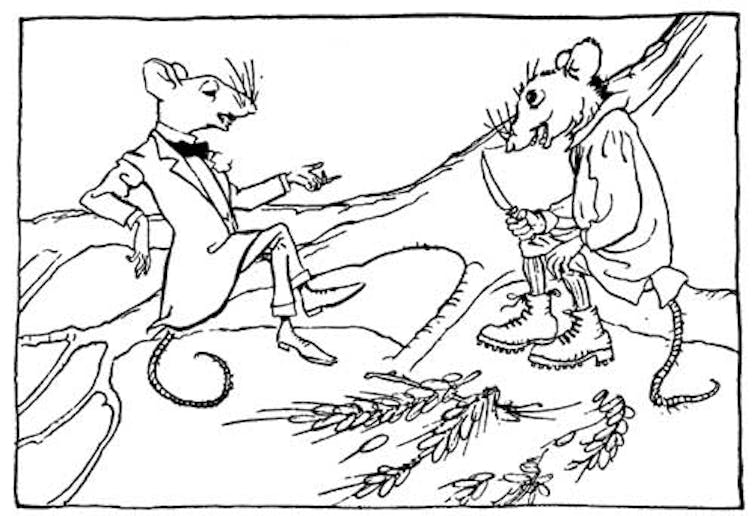Normally farmed outside, the hop plants are part of a unique indoor farming project by Spanish startup Ekonoke, which has developed an alternative way to cultivate this climate-vulnerable crop in order to protect the drinkability of beer.
Experts say rising temperatures and increased droughts have made Europe's hop harvests increasingly unpredictable, lowering yields and reducing the quality of the alpha acids in its resins and oils that are so crucial to the taste and character of different beers.
"Climate change is affecting the field, and last year we were down 40 percent on hop production in Europe," said Giacomo Guala, policy adviser on hops for Copa-Cogeca, which groups the European Union's main farmers unions.
 At its warehouse in Galicia, Spanish startup Ekonoke grows hops hydroponically, meticulously monitoring the lighting, temperature and nutrient levels inside the grow room © Brais Lorenzo / AFP
At its warehouse in Galicia, Spanish startup Ekonoke grows hops hydroponically, meticulously monitoring the lighting, temperature and nutrient levels inside the grow room © Brais Lorenzo / AFP
"You don't get rain when you're supposed to, or too much rain when you're not supposed to, so that predictability is no longer there," he told AFP.
Hi-tech hops
Brewers are already feeling that unpredictability.
Having a stable supply of hops was "crucial" as there was no alternative to give that bitterness, explained Jose Luis Olmedo, head of research and development at Cosecha de Galicia, the innovation arm of Spanish brewer Hijos de Rivera, which makes Estrella Galicia beer.
Reliant until now on field-grown hops, the Galicia-based brewer quickly saw the potential of the indoor hops grown by Ekonoke.
 Indoor hops grown by Spanish startup Ekonoke reach maturity in just three months © Brais Lorenzo / AFP
Indoor hops grown by Spanish startup Ekonoke reach maturity in just three months © Brais Lorenzo / AFP
When the startup raised 4.2 million euros in investment rounds in 2022, it said "a significant" chunk of it came from the brewer.
It also caught the attention of the world's largest brewer AB InBev, joining its startup accelerator program.
"What brewers are most interested in is the guaranteed supply of quantity and quality," said Ekonoke chief executive Ines Sagrario at their 1,200-square-meter (13,000-square-foot) pilot farm in Chantada, where they harvested their first crop in mid-February.
They began trials at their Madrid lab in 2019, starting with four plants and scaling to 24, slashing the growing time and using "15 times less water" than outdoors, while aiming "to reach 20".
"In this warehouse, we control all the environmental and nutrient parameters and the lighting factors, using LED lights to provide the plant what it needs when it needs it," said Sagrario.
The lights replicate the different colors and intensity of sunlight at each stage of the growth cycle when they bathe the rapidly growing plants in an ambient purple glow.
 After being cut down, the huge hop bins are fed into a harvesting machine outside Ekonoke's warehouse in Galicia © Brais Lorenzo / AFP
After being cut down, the huge hop bins are fed into a harvesting machine outside Ekonoke's warehouse in Galicia © Brais Lorenzo / AFP
Halving the growth cycle
The heady scent of hops permeates the air as a huge bine laden with hop cones is cut from its trellis, tumbling to the floor before being carried out to a red harvesting machine.
Grown without soil, the bins are fed by a closed system that allows constant reuse of the nutrient-infused water and doesn't use pesticides, relying instead on tightly controlled access protocols.
"In the field, although the cycle is six months, they can only harvest once a year, because you need the correct growing conditions," said agronomist and chief operations officer Ana Saez.
"Here, as we can control and replicate 'spring', we've reduced the crop cycle to three months."
Multiple trials had shown their hops contained "more alpha acids per kilogram" than those in the field, Saez said, pointing to the abundance of yellow powdery lupulin clinging to the cones.
 Trials have consistently shown Ekonoke's indoor hops contain 'more alpha acids per kilogram' than those in the field, says Saez © Brais Lorenzo / AFP
Trials have consistently shown Ekonoke's indoor hops contain 'more alpha acids per kilogram' than those in the field, says Saez © Brais Lorenzo / AFP
By summer, three grow rooms will be operational with more than 1,000 plants maturing on a staggered basis.
"Once we finish learning everything we need to learn in this pilot, we will be building a full-scale industrial facility with 12,000 square meters of growing area," said Sagrario, whose 12-strong team has so far managed to replicate five different hop cultivars.
For Hijos de Rivera, it's a project of "strategic" importance, with the brewer planning to have the facility fully operational "by the end of 2025", said Olmedo.
Mirek Trnka, a bioclimatologist from the Czech Academy of Sciences, said hydroponics was one solution, but scaling up to meet market demands would be tricky.
"Even though the hop is a minority crop, you'd have to upsize operations quite significantly to match the current production globally by hydroponic growth," he told AFP.
 Using LED lighting, Ekonoke can replicate the different colors and intensity of sunlight at each stage of the grow cycle © Brais Lorenzo / AFP
Using LED lighting, Ekonoke can replicate the different colors and intensity of sunlight at each stage of the grow cycle © Brais Lorenzo / AFP
At Ekonoke, they see their role as using science and technology to protect the hops' biodiversity and eventually developing new hybrids "to give more quantity and quality using less resources".
"People ask us if hop farmers outdoors feel threatened by us, but we're not threatening them. Climate change is threatening them," said Sagrario.
© 2024 AFP






 Mike Litterst, communications chief for the National Mall, says rising waters from the Tidal Basin are a serious menace for Washington's beloved cherry trees © Mandel NGAN / AFP
Mike Litterst, communications chief for the National Mall, says rising waters from the Tidal Basin are a serious menace for Washington's beloved cherry trees © Mandel NGAN / AFP Visitors take photos by a cherry tree called Stumpy, which is popular because of its less than beautiful appearance © Mandel NGAN / AFP
Visitors take photos by a cherry tree called Stumpy, which is popular because of its less than beautiful appearance © Mandel NGAN / AFP At its warehouse in Galicia, Spanish startup Ekonoke grows hops hydroponically, meticulously monitoring the lighting, temperature and nutrient levels inside the grow room © Brais Lorenzo / AFP
At its warehouse in Galicia, Spanish startup Ekonoke grows hops hydroponically, meticulously monitoring the lighting, temperature and nutrient levels inside the grow room © Brais Lorenzo / AFP Indoor hops grown by Spanish startup Ekonoke reach maturity in just three months © Brais Lorenzo / AFP
Indoor hops grown by Spanish startup Ekonoke reach maturity in just three months © Brais Lorenzo / AFP After being cut down, the huge hop bins are fed into a harvesting machine outside Ekonoke's warehouse in Galicia © Brais Lorenzo / AFP
After being cut down, the huge hop bins are fed into a harvesting machine outside Ekonoke's warehouse in Galicia © Brais Lorenzo / AFP Trials have consistently shown Ekonoke's indoor hops contain 'more alpha acids per kilogram' than those in the field, says Saez © Brais Lorenzo / AFP
Trials have consistently shown Ekonoke's indoor hops contain 'more alpha acids per kilogram' than those in the field, says Saez © Brais Lorenzo / AFP Using LED lighting, Ekonoke can replicate the different colors and intensity of sunlight at each stage of the grow cycle © Brais Lorenzo / AFP
Using LED lighting, Ekonoke can replicate the different colors and intensity of sunlight at each stage of the grow cycle © Brais Lorenzo / AFP
